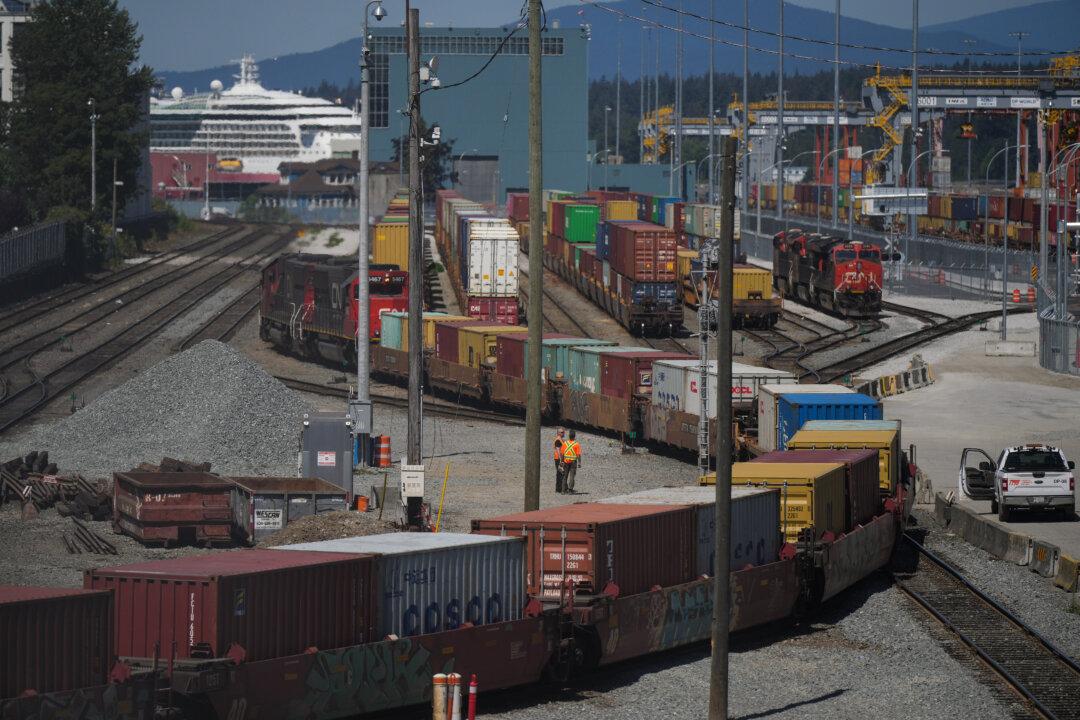Prime Minister Justin Trudeau has called for Canada’s two major railway companies and the union representing their 9,300 employees to come to an agreement, saying a shutdown would harm millions of Canadians.
“This is an issue that we are following extremely closely and moving forward on in every way we can,” Trudeau told reporters in Outaouais, Que., on Aug. 21.





